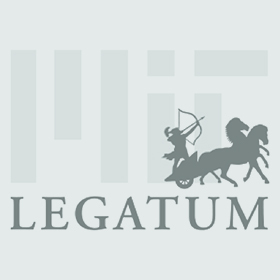A Whurley Welcome for the 2020-21 Academic Year
We are excited to introduce Will Hurley, better known as Whurley, as the new Innovator in Residence at the Legatum Center for Development & Entrepreneurship at MIT.
We first met Whurley in February, when he made an impromptu visit to MIT on a return trip from Colombia. The world we all live and work in everyday is now much different than what any of us could have imagined seven months ago. Events of the last several months have devastated families and small businesses, highlighted systemic inequalities, and brought to the fore opportunities for rebuilding more resilient institutions. With Whurley joining the Legatum Center as we welcome the 2020-21 Legatum Fellows, we asked him about his own entrepreneurial journey, what inspired him to become part of the Legatum Center and how he thinks innovation-driven entrepreneurs can shape our future.
You have founded three companies since 1999. How did you go from Chaotic Moon Studios to Honest Dollar to Strangeworks?
Between 1999 and 2009, I bounced between startups and large corporations. For that 10-year period I was often left wanting. Startups moved at lightning speed, but they are always in one of two phases: struggling or out of business. Most lacked the discipline and focus needed to establish and grow a business. Conversely, corporations were slow and cumbersome – sure, they offered great job security, but often they limited the creativity and freedom found in the culture and spirit of a startup.
In 2009, I merged my corporate and startup experiences to create something greater: Chaotic Moon Studios, a company that would have intense focus and limitless creative energy. From our naissance in early 2010, we brought dreams to reality building amazing mobile apps, mind control skateboards, and taser drones. It was one of the greatest experiences of my life. But I couldn’t shake the hollow feeling that we weren’t changing the world in a more compelling way. Since the company was a great success and on a path to acquisition, I decided it was time for a new adventure.
In March 2015, I launched Honest Dollar to apply my focus and creativity to something that would tangibly help others. At the time (as is still the case), we had a very acute problem to solve: the average American is not prepared to handle an unexpected $400 expense. I saw this as an opportunity to be the prophetic “hero founder.” I’ve since learned that this isn’t realistic. Honest Dollar had a clear mission and sleek software platform due to an amazing team. Within a year Goldman Sachs acquired the company–the first time in history that the firm had purchased a startup. Working at Goldman Sachs was super interesting, but I quickly found myself longing to launch another startup in another sector.
In March 2018, I announced Strangeworks during a SXSW keynote “The Endless Possibilities of Quantum Computing.” Quantum computing represented everything I was looking for: it is a complex topic, an emerging space, and offered a long creative runway. I was the happiest I had been as an entrepreneur. Quantum computing has the potential to radically change the world we live in, with Strangeworks as a catalyst. We may never win the Nobel Prize in physics, nor will we likely make the next great drug discovery. We will create something bigger than just a startup.
What is your favorite element of entrepreneurship?
Unintended consequences + unlikely discovery = what I love most about being an entrepreneur.
Managing the unforeseen and turning a potential negative into a definite positive is an incredibly rewarding feeling. With everything entrepreneurs learn along the way, I can’t think of any other lifestyle as challenging as it is rewarding.
What is the most important lesson you have learned about team building?
Magic happens when the goals of the team members and those of the organization are aligned.
Creating alignment between a company and its employees is the foundation of building a great team and achieving success. I advise entrepreneurs to undertake due diligence on their co-founders, early team members, and especially investors. The realization that you are as valuable to the investor as the investor is to you is imperative. And the relationship should always favor alignment; it should never be one-sided.
In this time of uncertainty, what advice do you have for early stage entrepreneurs?
We are in the midst of a chain of events that will have a huge impact on our future – the way we conduct business, engage with one another, and introduce chaos into our daily lives. A global pandemic was not something any of us wanted as the root of a disruption within both our uniquely individual and vastly collective quotidian, but things are very different now, and will continue to be that way for quite some time. Being confronted with a reality that makes us reconsider in totality what is important to us, and how we can support one another through this, is a burdensome thing to bear alongside the collective grief accompanying greater losses we’ve endured, like untimely departures of family, friends, neighbors, and coworkers. To dismiss the heaviness of that weight would be uncouth at best.
That being said, my best advice for entrepreneurs is this: Many companies we know now as household names today (including FedEx and GE) were all the product of a recession or depression. They owe their growth to a monumental shift in the market that none of us could’ve predicted. In the grand scheme of things, this pandemic creates as much, or more, opportunity than it destroys. Even the most devastating impacts of the present will ultimately have a silver lining. It’s something I believe strongly, and a topic about which my venture fund, Ecliptic Capital, recently published a freely available research report. This isn’t the time for entrepreneurs to be pessimistic about their operating environment. Opportunity is everywhere and it’s up to us to seize it.
You are an established entrepreneur based in Austin, TX. What inspired you to join the Legatum Center at MIT as an Innovator in Residence? The Legatum Center supports entrepreneurs building innovation-driven ventures in Latin America, Africa, the Middle East, South Asia, and Southeast Asia—markets that present many unique opportunities and challenges—and there are many other ways you could spend your time with entrepreneurs closer to home.
I have always believed that diversity is key to the future of humanity, and that it consistently makes for better teams and better companies. I also believe that entrepreneurship is the great equalizer. It helped me go from a future that lacked much promise to where I am in my career today. As my career progressed, I focused on mentoring and investing in entrepreneurs across the United States. When I experienced the difference firsthand that could be made in an entrepreneur’s life by lending them an ear or sharing my experiences, I decided that would be the guiding torch for my career. I felt truly blessed when I met the team at The Legatum Center, as I was thrilled to discover so much synchronicity with the foundations of my career and vision for the future. The mission of the Center couldn’t be more aligned with my own personal goals for giving back. And, the ability to support entrepreneurs from around the world, across multiple markets, and with such diversity really is a dream come true.
What advice do you have for established entrepreneurs and ecosystem builders who are seeking opportunities to mentor and inspire the next generation of innovators?
I feel that once one tastes success, it’s one’s duty to pay it forward – mentorship becomes your job. Finding the right opportunity can be a challenge. I’ve had to send many emails and return countless phone calls telling entrepreneurs that I’m not the right person for the mentorship they’re seeking. As I mentioned about startups and employees, alignment is key to a successful “seasoned” entrepreneur/mentor relationship. I’ve witnessed mentors grow frustrated working with entrepreneurs because they feel their advice is impersonal, and that their experience applies to every other startup – but nothing could be further from the truth. It is the duty of a mentor to find an entrepreneur that’s on a path they know well, and then help them navigate that path with wisdom. Mentorship is not about control, or people doing what ‘you would have done’ – instead, it’s about listening, taking the time to think about and revisit what you’ve heard, and finally, influencing the path of an entrepreneur in incremental ways that set them up for success. Mentorship is about the entrepreneur’s success.
…
Interview and article by Julia Turnbull, Assistant Director of Student Programs, MIT Legatum Center
Whurley is Founder & CEO of Strangeworks and General Partner at Ecliptic Capital. He previously founded Honest Dollar (acquired by Goldman Sachs) and Chaotic Moon Studios (acquired by Accenture), and is an Eisenhower Fellow.




